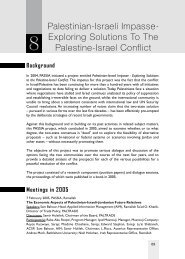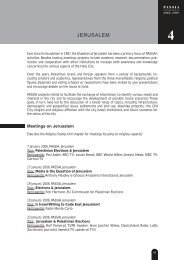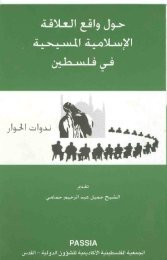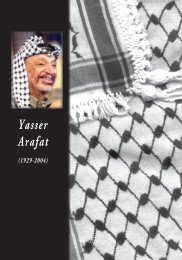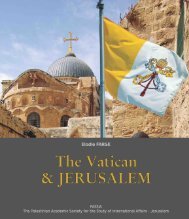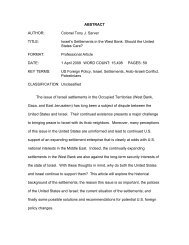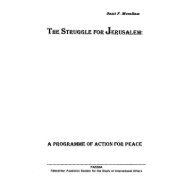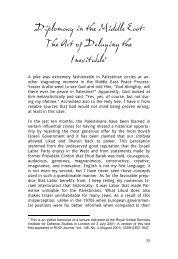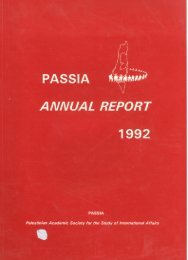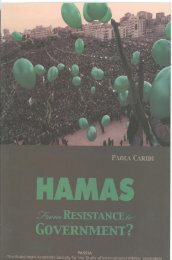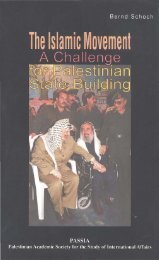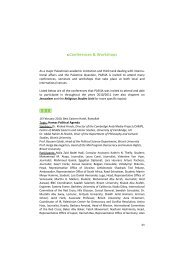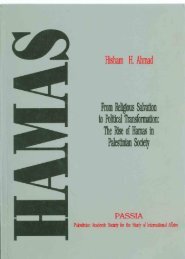FINLAND & PALESTINE Proceedings of a Joint Workshop
FINLAND & PALESTINE Proceedings of a Joint Workshop
FINLAND & PALESTINE Proceedings of a Joint Workshop
You also want an ePaper? Increase the reach of your titles
YUMPU automatically turns print PDFs into web optimized ePapers that Google loves.
For particular reasons (see Isotalo 1994), classical Orientalism<br />
was willing to exclude the 'sociological' study <strong>of</strong> the Orient<br />
from its field. Gunnar landtman was a Docent <strong>of</strong> Sociology at<br />
the University <strong>of</strong> Helsinki in 1910-27 and a temporary pr<strong>of</strong>essor<br />
in 1927-40. He was also Pr<strong>of</strong>essor <strong>of</strong> Philosophy in 1922-46.<br />
In other words, he was both Docent <strong>of</strong> Sociology and Pr<strong>of</strong>essor<br />
<strong>of</strong> Social and Moral Philosophy for five years. The 1920s and<br />
the 1930s was a slow period for research in Finland. For this<br />
reason, one might have expected a battle between different<br />
fields <strong>of</strong> research, especially because the scarce financial resources<br />
were divided on the basis <strong>of</strong> arguments related to language.<br />
The Finnish nationalist ideology also affected the research<br />
in question.<br />
As Hilma Granqvist started planning her dissertation in the<br />
1920s, she studied social and moral philosophy. When Granqvist<br />
told her plans to Gunnar Landtman, he approved <strong>of</strong> Granqvist's<br />
idea and suggested that she study women in the Old Testament.<br />
Landtman also arranged for Granqvist access to archives<br />
in Berlin, so that she could examine her topic thoroughly<br />
(Widen 1989, 27). From Berlin Granqvist joined an archeological<br />
research expedition to Jerusalem in order to get to know<br />
the scene <strong>of</strong> the Bible at first hand. In Palestine Granqvist came<br />
to the conclusion that research was to be done among living<br />
people, 'I needed to live among the people, hear them talk<br />
about themselves, make record while they spoke <strong>of</strong> their life,<br />
customs and ways <strong>of</strong> looking at things' (Granqvist 1932, 2).<br />
Granqvist stayed in Palestine after the course in Archeology<br />
and chose the Muslim village <strong>of</strong> Artas as her object <strong>of</strong> study.<br />
That is to say that Granqvist gave up her initial topic <strong>of</strong> women<br />
in the Old Testament. Had she kept her initial topic, she would<br />
for one thing have studied the Hebrew and Jewish women in<br />
the Bible; for another thing, she would have studied the past.<br />
28



